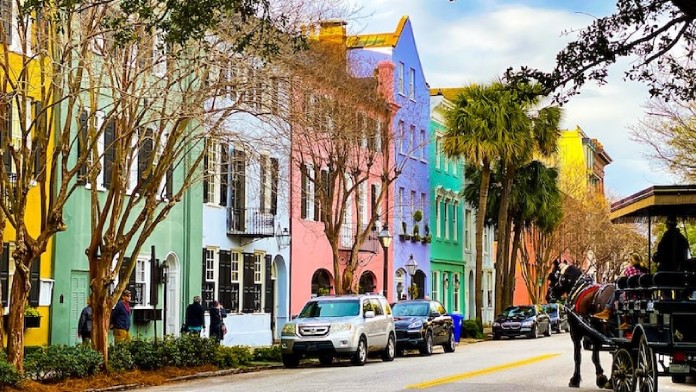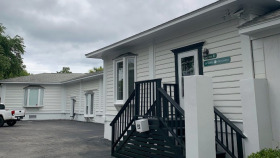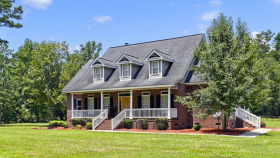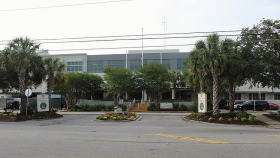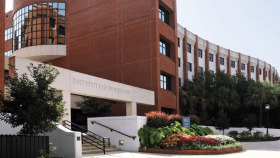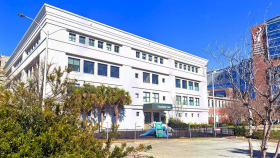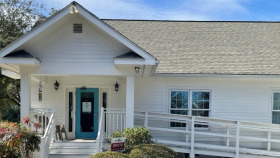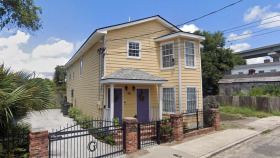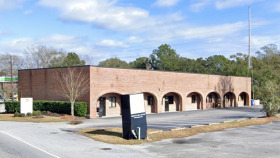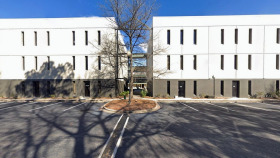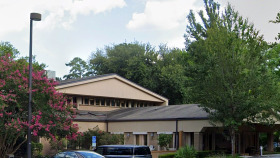Expert Insights
I recently learned about a program at the Medical University of South Carolina that may very well be saving lives. ED doctor Allison Smith, hated seeing addiction take over patients’ lives when they’d arrive at the hospital in a critical condition. Instead of judging patients and discharging them, which happens at a lot of EDs, Dr Smith has developed a program to find treatment for coming to the ED with signs of substance use disorder. So far, her team, which includes a peer recovery coach and care coordinator, has treated over 70 patients with medication. I think it’s a brilliant idea, not only that Dr. Smith is using evidence-based treatments that are now the gold standard for opioid use disorder, but she truly cares for patients rather than turning them away, while they get stuck in the system waiting for treatment. And her care doesn’t stop there, patients are monitored for over six months and she is observing good success rates – higher than other treatment programs.
~ Nikki Seay
The Cost of Drug Rehab in Charleston, SC
Each drug rehab in Charleston, SC varies in price, due to several factors:
Treatment setting (inpatient or outpatient)
Features and amenities (luxury or standard rehab facility)
Duration of program (30, 60, or 90 days)
Health insurance plan
If your chosen rehab facility is in-network with your health insurance plan
Location (city vs. suburb)
While prices vary greatly due to these considerations, the average cost of outpatient rehab in South Carolina is $1,707. For inpatient treatment in South Carolina, the average cost is $57,774. For medication assisted treatment, Charleston residents can expect to pay around $126 per week for methadone, $155 per week for buprenorphine, and $1,177 per month for Naltrexone, based on national averages.7
How to Pay for Treatment in Charleston, South Carolina
While some drug rehabs in Charleston, SC can be costly, there are multiple options available to reduce the cost. Charleston residents can look to the following programs to help make drug rehab more affordable.
Private Insurance
All insurance providers must cover at least some portion of the cost of substance abuse treatment, per federal law. Coverage differs by plan and provider, so residents should contact their insurance company to learn what coverage is available for drug rehab in Charleston, SC through their specific plan.
Medicaid
Medicaid is South Carolina’s state aid program that provides medical care for those who have low income. This coverage includes substance abuse treatment. The program, called Healthy Connections, is managed by the South Carolina Department of Health and Human Services.
Medicare
Offering medical coverage for Charleston residents 65 or older or who have certain qualifying medical conditions, Medicare is a nationwide program that can reduce treatment costs. Several Medicare plans are available, and each provides different coverage. However, not all drug rehabs in Charleston, SC accept Medicare as a form of payment, so it’s important to confirm whether they accept Medicare before enrolling in a program.
Sliding Scale Rehabs
With this option, you are required to pay only what you can afford for treatment, based on your income. Most drug rehabs in Charleston, SC ask for proof of income to qualify individuals for this discount.
TRICARE
TRICARE is the federal program that provides health insurance for active-duty service members and their families, as well as retirees, survivors, and some former spouses. This coverage includes substance abuse treatment.
IHS-Funded Drug Rehabs
Indian Health Service (IHS) offers health coverage for Alaskan Natives and American Indians. Through this service, these populations can receive low-cost or no-cost drug rehab in Charleston, SC.
Making Drug and Alcohol Rehab More Affordable
For those who are under-insured or uninsured, it can be difficult to pay for rehab. However, financing options are available for those who qualify. If treatment cost is a challenge for you, consider the following options.
Choose a Program Offering Payment Plans:
Many drug rehabs in Charleston, SC offer payment plans. This allows you to make small weekly or monthly payments for treatment rather than pay the entire amount up front. Most programs charge a fee or interest to use this type of plan.
Apply for a Rehab Scholarship:
Corporations, nonprofit organizations, and treatment facilities offer many scholarships for drug rehab in Charleston, SC. These are awarded based on financial need and personal circumstances. To learn about any opportunities available, check with local treatment facilities.
Ask About Sliding Scale Payment Options:
Because not all drug rehabs in Charleston, SC advertise this option, it’s important to ask if it’s available. Sliding scale payment lets you pay an amount for treatment that is based on your income, so you can afford it. Most facilities require proof of income to participate in this type of program.
Charleston, SC Drug and Alcohol Statistics
The following statistics reveal recent trends in drug and alcohol abuse in Charleston, SC and its surrounding Charleston County.
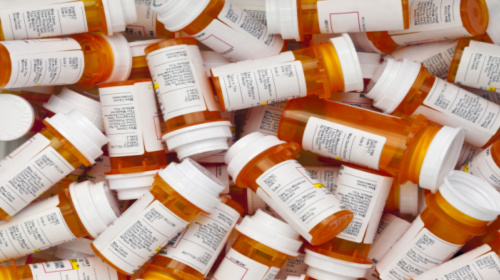
In 2020, the opioid dispending rate in Charleston County was 103.6 per 100 persons.4
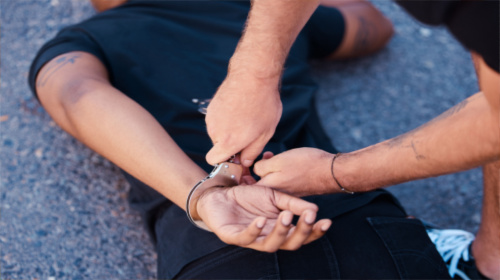
The rate of drug-related crime in Charleston is 1.15 per 1,000 residents per year.5
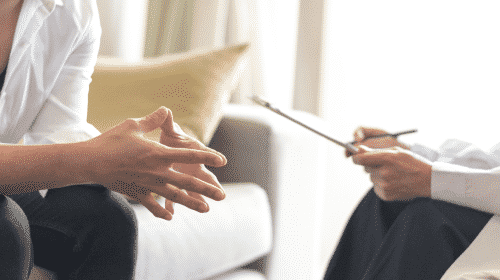
Between 2017 and 2019, 24.12% of Charleston County adults reported binge drinking.5
There were 1,127 fatal drug overdoses in 2019 in South Carolina.6
Law enforcement made 37,390 drug-related arrests in South Carolina in 2019.6
- In 2019, among South Carolina Counties, Charleston County had the second highest number of residents diagnosed with opioid addiction by state-funded treatment services.2
- There were 140 drug overdose deaths in Charleston County during the 12-month period ending in September, 2022.3
- In 2019, the rate of opioid-related hospitalizations in Charleston County was 254.98 per 100,000 population.5
- The rate of DUI crashes in Charleston County during 2019 was 96.09 per 100,000 population.5
- In Charleston County, the rate of EMS naloxone administrations during 2019 was 157.57 per 100,000 population.5
Alcohol and Drug Laws in Charleston, SC
The following laws govern substance use and related issues in Charleston, SC.
Open Container Laws: In Charleston, SC, it is illegal to consume alcoholic beverages on sidewalks, streets, or public ways. Open containers of alcohol are allowed at public parks or playgrounds only if the city has issued a permit for a special event.
Boating Under the Influence (BUI): A first offense of BUI in Charleston, SC is classified as a misdemeanor, punishable by imprisonment for up to 30 days, a fine, or community service. Watercraft operation privileges are also revoked for six months. Penalties increase for second and third offenses. If an intoxicated boater causes bodily injury to someone, this is classified as a felony, and the offender can be sentenced to up to 15 years in jail. If the boater causes a death, this is punishable by between one and 25 years in jail.
Standing Naloxone Order: South Carolina pharmacists can dispense naloxone without a prescription. Anyone can access this opioid overdose antidote at participating pharmacies.
South Carolina Good Samaritan Law: This law is designed to encourage South Carolina residents to seek emergency medical help during an overdose situation. It grants limited immunity from legal prosecution for possession or distribution of substances if an individual experiences or witnesses an overdose and calls 911.
Drug Court Programs: If a South Carolina resident is arrested for a drug-related crime and they are in need of drug rehab, the drug court program can provide alternative sentencing. Instead of serving time in jail, the person can complete treatment and have their criminal record expunged.
Levels of Care for Addiction Treatment in Charleston
Detox
For most individuals, the first step of drug rehab in Charleston, SC is detox. This is the process of cleansing your body of all drugs and alcohol, in a safe, supervised setting. Medical professionals may provide medication to alleviate withdrawal symptoms during this time. Once this phase is complete, you are ready to move into an inpatient or outpatient setting for drug rehab in Charleston, SC.
Inpatient Drug and Alcohol Rehab
Inpatient treatment involves living at a facility under 24/7 supervision, to receive intensive care. Treatment typically includes individual and group counseling, medication, and other forms of therapy such as art, music, recreation, or equine-assisted therapy.
Partial hospitalization programs (PHPs)
PHPs offer many of the same treatment services as inpatient care, but you return home during non-treatment times. This type of treatment often serves as a bridge between inpatient and outpatient care.
Intensive Outpatient Programs (IOPs)
IOPs are a step down from PHPs. With this type of program, you attend counseling several days each week while spending the rest of your time at home, at work, or fulfilling other obligations.
Standard Outpatient
During outpatient treatment, you attend a few hours of treatment per day or week while living at home. This allows you to get the help you need while also maintaining work and family responsibilities.
Telehealth and Online Addiction Treatment
Using innovative technology, drug rehabs in Charleston, SC can provide treatment remotely for those who can’t attend in person. Options include videoconferencing, web-based platforms, and texting. These methods can be helpful for those who live in remote locations far from treatment, have transportation challenges, or are physically incapable of attending treatment.
Aftercare
The recovery journey does not end with completion of inpatient or outpatient treatment. Aftercare provides ongoing support to prevent relapse and encourage life-long recovery. Aftercare often takes the form of individual counseling and 12-step groups.
Resources
- The Post and Courier. (2021) Rising gang activity fueling the drug trade in SC’s Lowcountry, police say.
- Bureau of Justice Assistance. (2021). Charleston County Addiction Crisis Task Force: Police Assisted Peer Recovery Outreach Initiative.
- Centers for Disease Control and Prevention. (2023) Provisional County Drug Overdose Deaths.
- Centers for Disease Control and Prevention. (2022). U.S. County Opioid Dispensing Rates, 2020 – CDC Injury Center.
- South Carolina Department of Alcohol and Other Drug Abuse Services. (2020). South Carolina County-Level Profiles on Substance Use-Related Indicators
- Drug Policy Alliance. (n.d.). State-by-State Laws.
- National Institute on Drug Abuse. (2021). How much does opioid treatment cost? National Institute on Drug Abuse.

